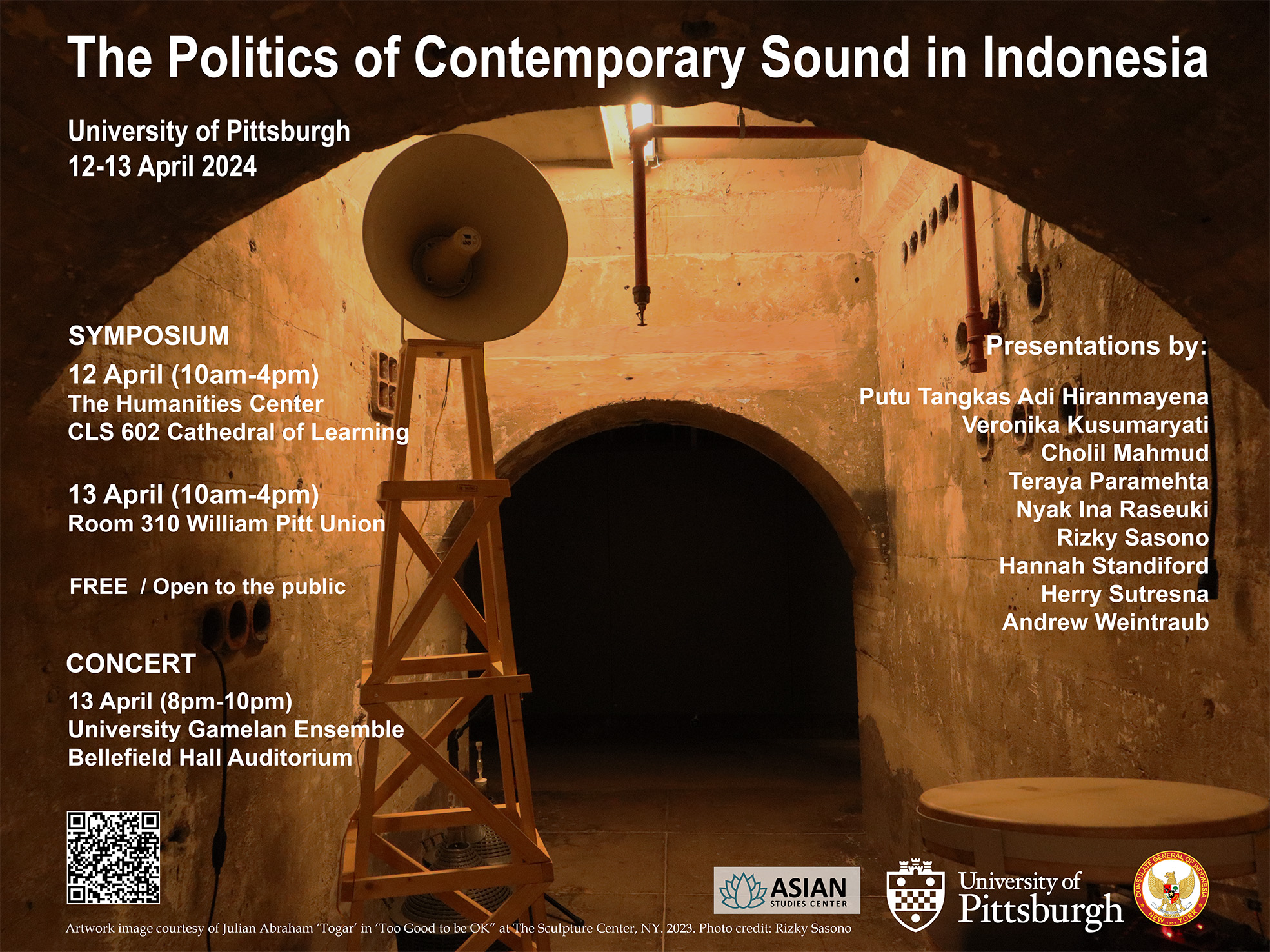Reformasi, the political era following the 1998 breakdown of the New Order regime in Indonesia, opened new possibilities for Indonesian performing arts. Performers began blurring the lines between mediums and cultural disciplines as well as challenging the boundaries between the contemporary and the traditional. After 1998, musicians’ interest in exploring tradition was not based in nostalgia or New Order imperatives towards "preservation.” Instead, traditional practices were integrated into more fluid contemporary sound practices, hybrid forms, and new media.
Inspired by Sapto Rahardjo's gamelan and technology innovations in the mid-1990s, younger generations of experimental musicians followed with even more diverse forms of reference and imagination. Popular genres, such as dangdut and heavy metal, yielded spinoff genres (e.g., koplo) and new public expressions of Islam (as seen in the all-female band Baceprot), respectively. Nya Ina Raseuki’s 2007 album Kroncong Tenggara completely reimagined traditional forms of kroncong (Indonesian string band music). Indonesia’s music scenes fused with neoliberal approaches to music that elevated underground sounds to popular circulation.
In contemporary Indonesia, musicians continue to blur the lines between “mainstream” and “underground” sounds. Despite the current period of stagnant reform (reformasi dikorupsi), sound still serves as a medium for “the political.” These politics take different forms including critiques of the state by hip-hop act Homicide, articulations of human rights violations by the indie-rock group Efek Rumah Kaca, and performances of “apolitical politics” by the women’s chorus Dialita. Other examples of “the political” in music include cultural movement approaches, such as the experimental duo Senyawa, the netlabel Yes No Wave, and Festival Musik Rumah which celebrates off-the-radar musicians through annual online festivity.
New sound practices have made Indonesia’s soundscape livelier, louder, more diverse, and more exciting than ever. In approaching “sound as form” and “sound as cultural practice,” we ask: How does sound relate to the political dimension of culture? What forms of sound define politics? What are the constraints and possibilities of a new “sound politics” in Indonesia today?
Friday, April 12
The Humanities Center, Cathedral of Learning (CL602)
09.30-10.00 Meet-up and Coffee
10.00-10.15 Welcoming Remarks (Andrew Weintraub)
SESSION 1 Reflecting the Politics of Yesterday, Today
10.15-11.00 Encountering “the People” in LEKRA, the Institute of People’s Culture (Andrew Weintraub)
11.00-11.00 “Waringin Sakti” Popular Culture and Politics in the New Order (Hannah Standiford)
11.45-13.15 Lunch
SESSION 2 Sound and Identity Politics
13.15-14.00 “Tell Me Again, How an Indonesian is Supposed to Sound”: Politics of Creativity and Epistemic Justice through Heavy Metal and Gamelan (Putu Tangkas Adi Hiranmayena)
14.00-14.45 Cacophony as a Metaphor of Postcolonial Lives in Bali: The Politics of Soundscape Making (Teraya Paramehta)
Saturday, April 13
William Pitt Union, 310
09.30-10.00 Meet-up and Coffee
SESSION 3 Sound and Community
10.15-11.00 Perlawanan Bunyi (Sonic Resistance): The Other Music in Post-Political Indonesia (Nyak Ina Raseuki)
11.00-11.45 The Politics of Peripheral Sounds in Eastern Indonesia (Veronika Kusumaryati)
11.45-13.15 Lunch
SESSION 4 The Independent Music Scene
13.15-14.00 (Not quite) Ok Studio: Installation of Indonesian Political Sounds in the Global Music and Art Scene (Rizky Sasono)
14.00-14.45 Music, Community and Radical Politics in Post-New Order Bandung (Herry Sutresna)
14.45-15.30 How Indonesian Musicians Criticize Music Policies: Case Study of Music Bill Draft (RUU Permusikan) and Copyright Royalty Regulation (PP 56/2021)(Cholil Mahmud)
University Gamelan Ensemble Concert
20.00-22.00 University Gamelan Ensemble

